Washington Economic Justice Alliance
ABOUT
WHO WE ARE
Alliance Members
POVERTY IN WA
Information about poverty in WA, the need for the plan.
Let’s work together to create a Washington where everyone can thrive.

10-Year Plan to
Dismantle Poverty
Year 3 Impact Report

THE 10-YEAR PLAN TURNS 3!
Co-created with experts living on a poverty income, the eight strategies and 60 recommendations in the 10-Year Plan are grounded in overwhelming evidence that investments to reduce poverty yield high returns for our communities and the economy.
The Alliance is excited to share progress made over the past three years and double down on the considerable work that remains. While the state’s poverty rate is relatively low nationally, cost-of-living is high and too many hard working Washingtonians are struggling to make ends meet. We hope you will join us in achieving a bold vision for the future: a Washington free of poverty, where everyone can thrive and experiences dignity, belonging and joy.

The Washington Economic Justice Alliance (“the Alliance”) is a collaboration between experts with lived experience, community and tribal partners, and agencies to implement the 10-Year Plan. The Alliance brings together three related groups under a single, unified identity – the Poverty Reduction Work Group and its Steering Committee of experts with lived experience, and the Subcabinet on Intergenerational Poverty.
The Alliance’s mission is to advance policy, program and funding changes that ensure every Washingtonian can meet their basic needs, fully contribute their talents, and pass well-being on to future generations.
the alliance ignites change through:
-
Radical Collaboration
Meaningful change occurs when people and groups align towards shared goals.
-
The Alliance partners with people who have lived experience of poverty, community and tribal partners, and agencies to inform priorities and advance policy, program, and funding recommendations with the Governor and Legislature.
Experts with Lived Experience
The 10-Year Plan is grounded in the wisdom and experience of people experiencing poverty and inequality. As experts in their own lives and the users of state systems, Washingtonians with lived experience are uniquely positioned to co-create solutions and inform policy, program, and funding decisions.

Community Organizations
Community organizations are trusted institutions among residents and hubs for resources, services, and advocacy. With intuitive, boots-on-the ground knowledge of the people and communities they serve, the Alliance’s community partners – local service organizations, workforce development councils, businesses, advocacy groups, and philanthropy – are essential partners in informing solutions and urging action to address poverty and inequality.
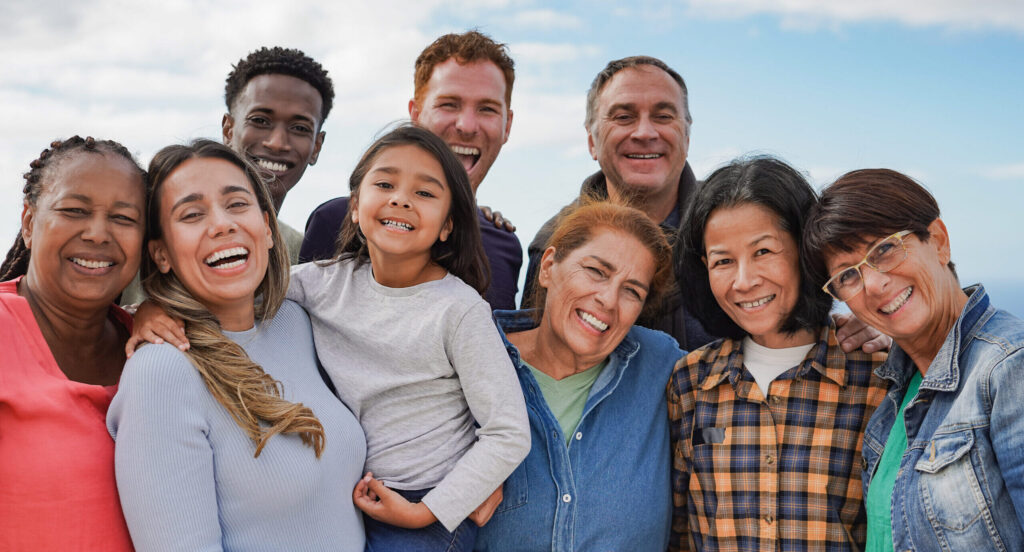
Tribal and State Partners
Tribal and state agencies oversee human service programs serving millions of Washingtonians experiencing economic hardship every year. The tribal nations and state agencies involved in creating the 10-Year Plan set agendas and create strategic plans that offer opportunities for alignment to address the multidimensional ways poverty plays out in people’s lives and create accountability to outcomes.
-
Evidence Based Solutions
Data, research and real-life stories ground community-led solutions.
-
The Alliance combines numbers and research with real-life stories to gain a deeper and more accurate understanding of poverty in Washington state.
Our partnership with the Just Futures Coalition is investing in community-led definitions and measures of well-being to uplift policy, program and funding solutions that invest in the wealth and richness of Washington’s diverse communities.
-
Aligned & Sustained Action
Taking action together builds momentum and creates change.
-
-
Learning & Accountability
A commitment to always learn, improve and be accountable maintains trust.
-
The Alliance’s 10-Year Plan Action Tracker and “Being Well in Washington” data dashboard communicate actions and progress toward goals with the public. Data and actions will be routinely evaluated by our forthcoming Economic Justice Alliance Advisory Board, a forum for continuous learning, action and accountability to the 10-Year Plan.
The Alliance partners with people who have lived experience of poverty, community and tribal partners, and agencies to inform priorities and advance policy, program, and funding recommendations with the Governor and Legislature.
Experts with Lived Experience
The 10-Year Plan is grounded in the wisdom and experience of people experiencing poverty and inequality. As experts in their own lives and the users of state systems, Washingtonians with lived experience are uniquely positioned to co-create solutions and inform policy, program, and funding decisions.

Community Organizations
Community organizations are trusted institutions among residents and hubs for resources, services, and advocacy. With intuitive, boots-on-the ground knowledge of the people and communities they serve, the Alliance’s community partners – local service organizations, workforce development councils, businesses, advocacy groups, and philanthropy – are essential partners in informing solutions and urging action to address poverty and inequality.

Tribal and State Partners
Tribal and state agencies oversee human service programs serving millions of Washingtonians experiencing economic hardship every year. The tribal nations and state agencies involved in creating the 10-Year Plan set agendas and create strategic plans that offer opportunities for alignment to address the multidimensional ways poverty plays out in people’s lives and create accountability to outcomes.
The Alliance combines numbers and research with real-life stories to gain a deeper and more accurate understanding of poverty in Washington state.
Our partnership with the Just Futures Coalition is investing in community-led definitions and measures of well-being to uplift policy, program and funding solutions that invest in the wealth and richness of Washington’s diverse communities.
The Alliance’s 10-Year Plan Action Tracker and “Being Well in Washington” data dashboard communicate actions and progress toward goals with the public. Data and actions will be routinely evaluated by our forthcoming Economic Justice Alliance Advisory Board, a forum for continuous learning, action and accountability to the 10-Year Plan.
IMPACT
Investing in the economic well-being of Washingtonians is just good, smart policy. And the seeds the Alliance has planted over the last three years are bearing fruit!
Since the 10-Year Plan was released, Alliance partners have collectively taken over 270 policy, program, and funding actions to implement the plan. Better yet? With the 10th lowest poverty rate in the nation, Washington’s official poverty rate is well below the national average.
Trends also show accelerated progress toward closing gaps in economic well-being among Indigenous, Black and Brown Washingtonians, children and rural communities. Washington state’s poverty reduction efforts and the 10-Year Plan have been featured as a national best practice by the Aspen Institute, Harvard’s Leadership for a Networked World, and the American Public Human Services Association.
Actions taken by Alliance partners
Lowest poverty rate in the U.S.
National Best Practice
American Public Human Services Association
CHANGE IN OFFICIAL POVERTY RATE BY RACE & ETHNICITY
Washington State 2018-2022
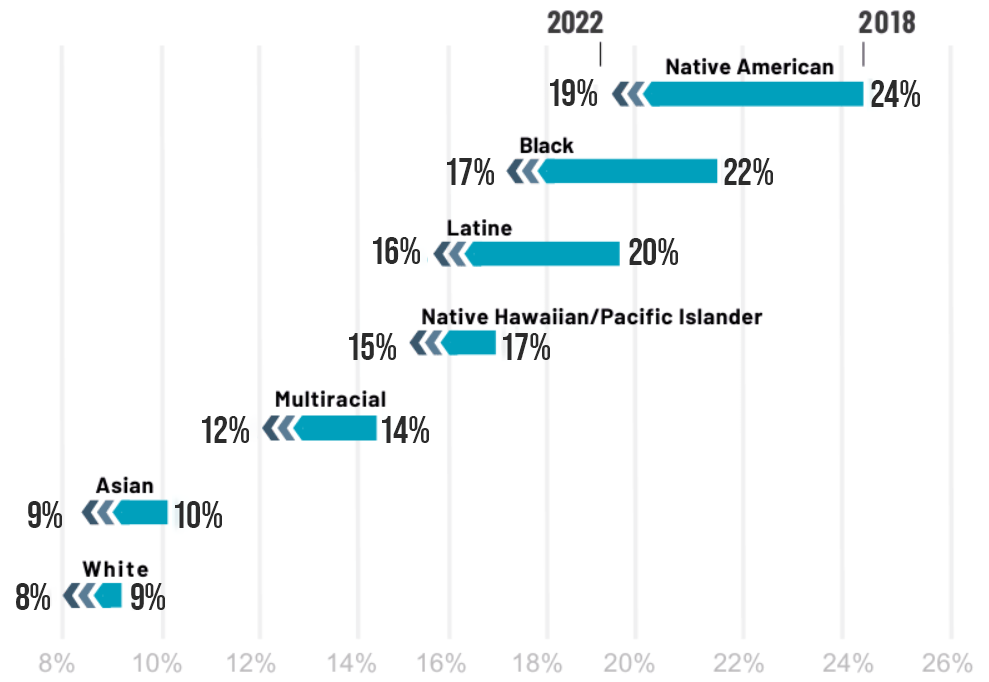
CHANGE IN OFFICIAL POVERTY RATE BY COUNTY
Washington State 2018-2022

ALLIANCE PARTNER HIGHLIGHTS
The numbers are proving that progress to reduce poverty is possible when a critical mass of folks with diverse expertise and power align to achieve shared goals: preventing poverty, improving access to services, and promoting economic stability, mobility and wealth-building.
Explore how Alliance partners are making a difference in the lives of Washingtonians below and visit the Action Tracker to learn more.
Strategy 3 of the 10-Year Plan highlights tax credits as powerful tools to prevent poverty and allow hard-working Washingtonians to benefit from the state’s economic activity. The Working Families Tax Credit passed in 2022, boosting the incomes of 162,000 households across Washington state in its first year. In 2023 each of those households received a share of the $115 million in refunds issued – reaching 234,000 children statewide. It is estimated that upwards of 350,000 households may qualify annually for the credit. An aligned group of partners brought the WFTC to fruition, including a statewide coalition of over 50 labor, immigrant rights, and direct-service organizations, Governor Inslee, legislators, and the Department of Revenue. Apply for the Working Families Tax Credit for your household.
Community Compensation
Strategy 2 of the 10-Year Plan recommends elevating the expertise of people with lived experience getting by on a poverty income and adequately compensating them for their time, so that solutions are designed to meaningfully reduce poverty. Spearheaded by the state Attorney General’s Office, the Legislature passed 2SSB 5793 in 2022, encouraging state agencies to compensate experts with lived experience when they participate in work groups. In the first year implementing 2SSB 5793, 20 state agencies disbursed over $300,000 to nearly 1,000 experts with experience.
The Integrated Eligibility and Enrollment Modernization Program is a multi-organization, multi-year collaboration to transform how Washington residents access health and human services statewide.
Aligned with Strategies 5 and 6 of the 10-Year Plan, the IE&E Modernization Program will simplify the application and eligibility process for multiple programs, streamlining access to benefits for 3 million Washingtonians who receive services from HHS agencies each year.
DOL2Go: Live, Work, Drive and Thrive Campaign
People experiencing poverty often face multiple barriers to getting services that would help them achieve economic stability, including not having a valid ID or driver’s license. This means people with lower incomes are less likely to have a bank account, be able to fill out employment paperwork, or apply for state benefits.
Recognizing a gap in services for Washingtonians unable to reach their local Department of Licensing office, the Legislature funded DOL2Go – a mobile unit that travels across Washington to meet people where they are and get them the identification they need. DOL2Go’s first success story in reaching underserved communities was at Camp Hope in Spokane, where their work in partnership with other government and community services supported nearly 600 people to transition out of homelessness and into permanent shelter, resulting in the camp closing in June 2023.
Increased Access to Fresh Fruits and Vegetables
The Department of Health, in collaboration with healthcare professionals and other partners, is committed to increasing access to fruits and vegetables through WIC, the Farmer’s Market Nutrition Program, and the Fresh Fruit and Vegetables Incentive Program. As a result of these partnerships, all WIC participants will see a permanent increase in their overall benefit value. This significant change allows for more purchases of fruits and vegetables, with an expanded variety that now includes herbs. Last year, Washington moved from check-based redemption for the Farmer’s Market Nutrition Program to electronic benefits, making benefit redemption easier for both participants and growers. In addition, the Fruit and Vegetable Prescription Program works with Washington healthcare centers to prescribe fruits and vegetables to patients who experience food insecurity. Patients receive between $250 to $500 in vouchers that are redeemable at Safeway stores. These changes help 135,000 Washington residents.
Economic Security For All
Aligned with Strategies 1, 2, 6, and 8 in the 10-Year Plan, Economic Security for All (EcSA) is a comprehensive pro-equity, anti-racism poverty reduction program. It holistically provides each participant with a career plan, a caring coach, coordinated wraparound support service from multiple programs, $1000 per month incentive payments to stay on track with the career plan, and automatic income eligibility for the full Washington College Grant. Employment Security Department manages EcSA and local Workforce Development Boards implement it in partnership with stakeholders, agencies, and people with lived experience. EcSA is now state law, and it has moved 941 Washingtonians from poverty to economic stability, with incomes averaging over $45,000 per year.
Local Basic Income Pilots
Strategies 6 and 8 in the 10-Year Plan recommended increasing direct cash to keep people from experiencing poverty and stabilizing the economic floor for Washingtonians in an increasingly uncertain labor market. Two Alliance partners are leading direct cash pilots in Washington state.
- Growing Resilience in Tacoma (GRIT)
GRIT is part of the Mayors for a Guaranteed Income nationwide pilots and administered in partnership with United Way of Pierce County. In the initial phase of GRIT, 110 families in Tacoma benefitted from monthly payments, with profound results: 71% of dollars received were spent on basics like food, clothing, toiletries, household supplies, etc., and nearly 12% were spent on housing/utilities. GRIT received $2 million from the Legislature to continue the program, which is currently underway.
- Reimagining the Workforce Safety Net
The Workforce Development Council of King County's Reimagining the Workforce Safety Net pilot provides direct cash support and comprehensive career services. Among the 102 participants in the first cohort, employment rates increased from 37% to 66%, leading to higher-paying jobs, increased benefits, and overall quality of life. Beyond financial assistance, participants received career counseling, job search support, training funding, support services, and financial education with a 2:1 savings match.
Closing the Homeownership Gap
Strategy 3 in the 10-Year Plan notes that homeownership remains the predominant path for wealth- building in the United States, but racial discrimination throughout our history unjustly prevented BIPOC communities from becoming homeowners, leading to large disparities in homeownership and wealth between people of color and white people. A 2022 report by the Homeownership Disparities Work Group, chaired by the Department of Commerce, recommended targeted investments to improve homeownership among BIPOC Washingtonians. Thanks to the support of community leaders, advocates, and legislators, the Legislature immediately responded with a new funding source that will generate $70-$100 million annually to create the Covenant Homeownership Program, which will make an estimated 27,000 BIPOC Washingtonians eligible for down payment and closing cost assistance.
Community Reinvestment Project (CRP)
Aligned with strategies 1, 2, 3, 7, and 8 in the 10-Year Plan, the Community Reinvestment Project is a community-designed plan to uplift communities disproportionately harmed by the historical design and enforcement of criminal laws and penalties for drug possession. The goal is to create lasting economic benefits, build wealth, and ensure everyone has a fair chance at success.
CRP is expected to generate up to $1.6 billion in economic benefits for targeted communities over the next decade. With $200 million already contracted and benefiting individual households, the project remains on track to make a significant impact in the lives of Washingtonians. This includes creating jobs in partnership with diverse small businesses, offering training programs to meet workforce needs, higher self-sufficient incomes for people to support their families, helping people acquire assets like homes and new businesses, and increasing the safety of our neighborhoods through community-led projects.
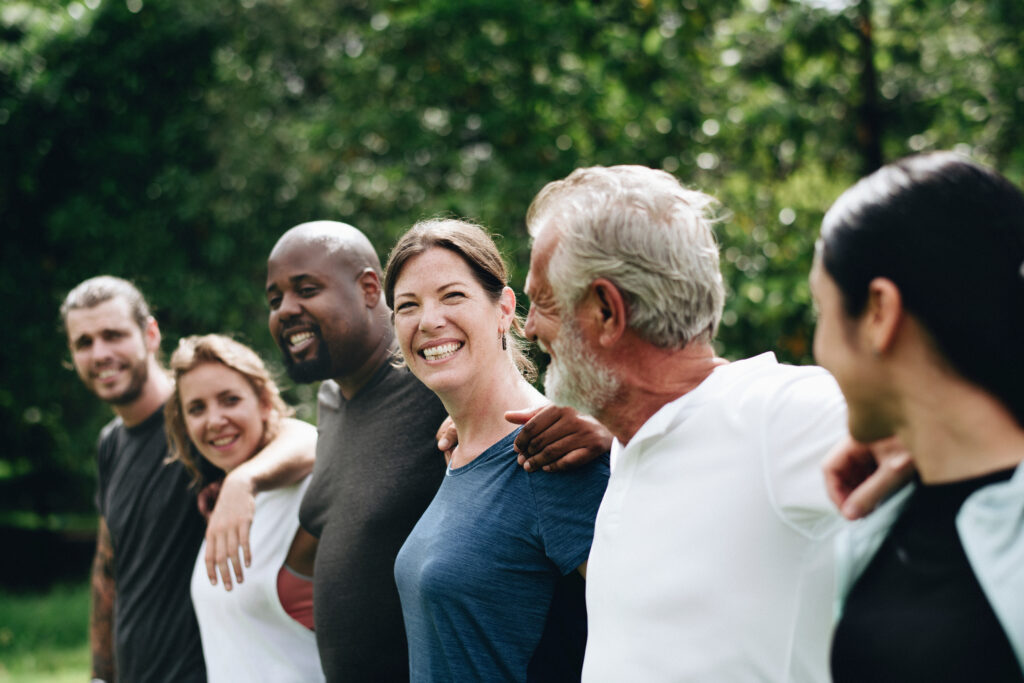
What people are saying

“People experiencing poverty have the knowledge and expertise to guide the state toward a just and equitable future. I look forward to seeing the Alliance grow and unlock the talent and potential of all Washingtonians.”
Drayton Jackson
Alliance Co-Lead
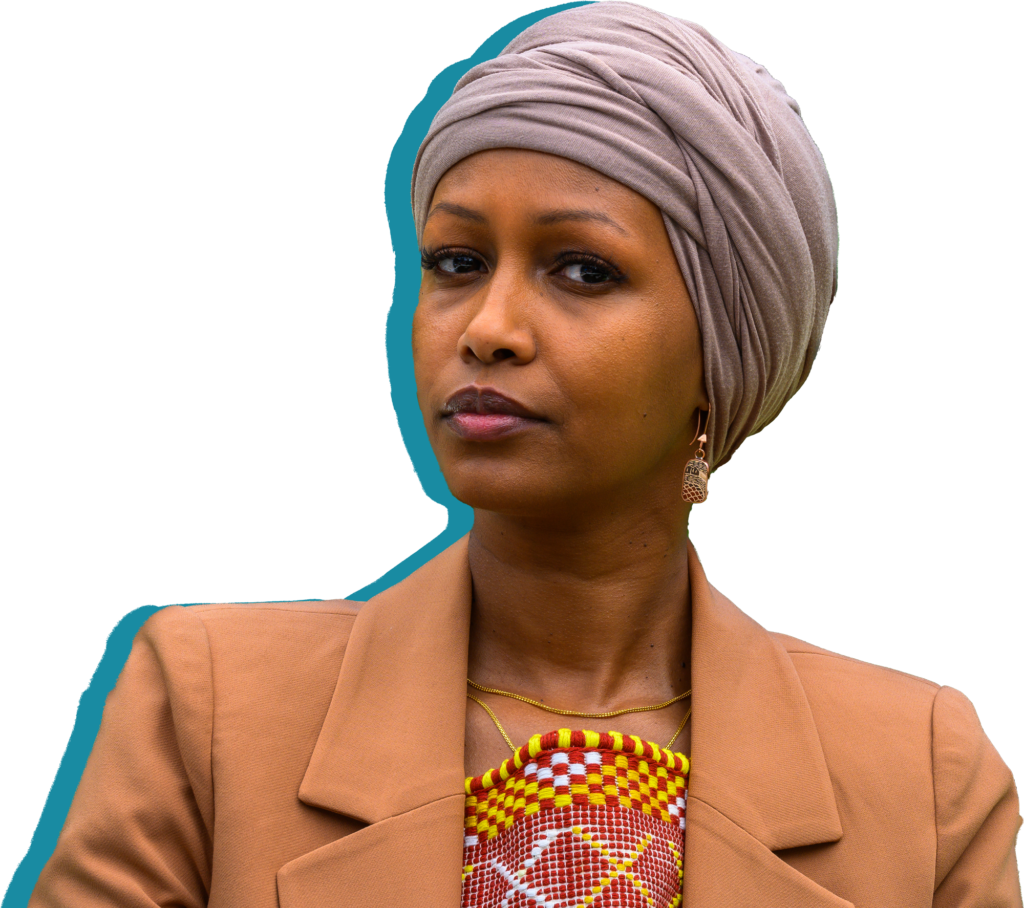
“The collaboration with Economic Justice Alliance has worked because it is anchored by a unifying purpose of honoring the lived experiences and expertise of frontline communities. The partnership rejects the narrative of & ‘we know better’ and instead embraces a collaborative ethos that recognizes the inherent dignity in every community knowing their needs best.”
Faduma Fido
Lab Leader, People’s Economy Lab

“For 60 years, Community Action Agencies have been on a mission to eliminate the causes and conditions of poverty, all while centering lived experience and local leadership. It has been incredible to see the 10-Year Plan become a platform for leaders to rise up from within our network. The 10-Year Plan will continue to be WSCAP’s North Star in deepening our advocacy for equity and systems change in the work we do here in Washington.”
Jeff DeLuca
Executive Director, Washington State Community Action Partnership
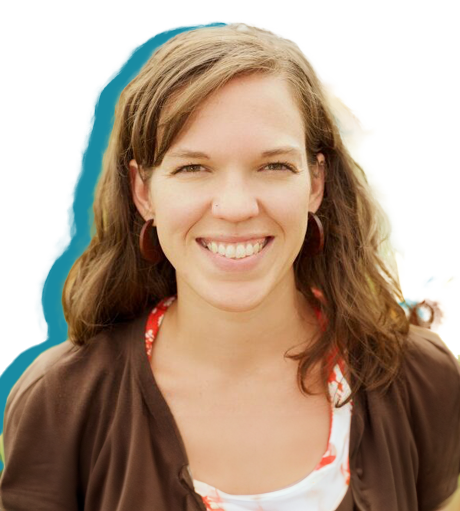
“Solid Ground and Statewide Poverty Action Network are proud to partner in the Washington Economic Justice Alliance. The 10-Year Plan to Dismantle Poverty is bold, holistic, and reflective of what people with low incomes have shared with us for decades. We are committed to building on this strong partnership until we achieve economic justice for all in Washington state.”
Marcy Bowers
Executive Director, Statewide Poverty Action Network
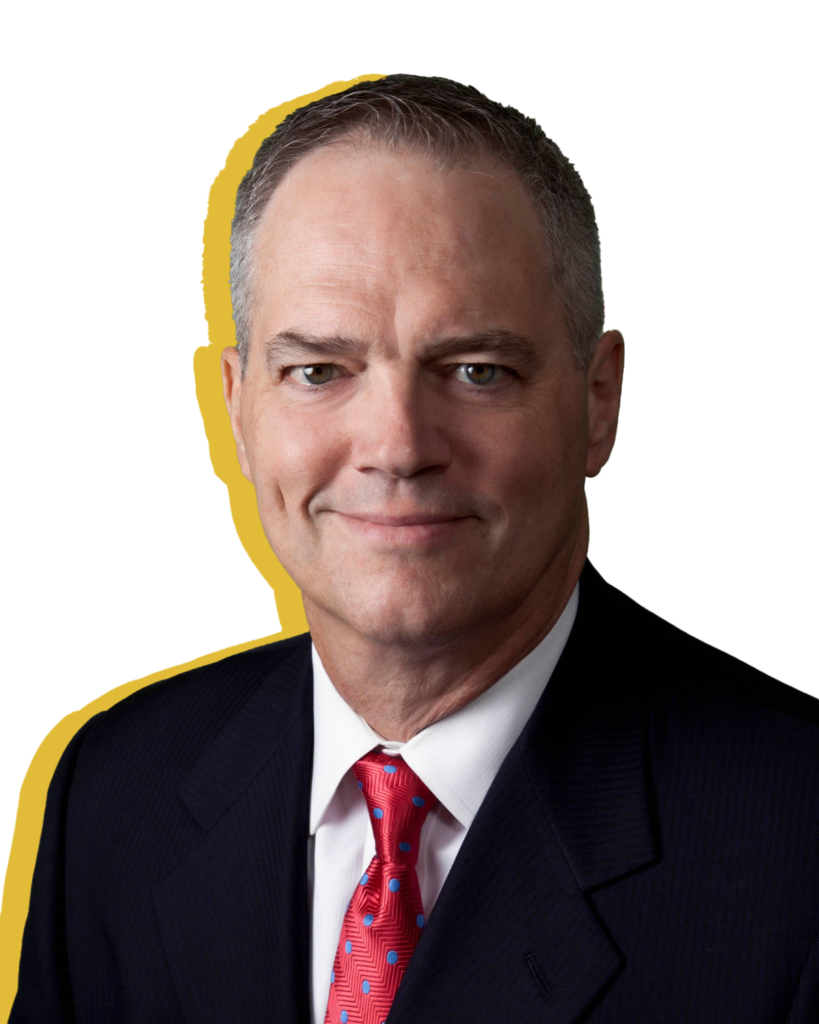
“Reducing poverty keeps families together and supports healthy children. It is one of the highest return investments we can make to improve long-term outcomes for children in Washington state.”
Ross Hunter
Former Secretary, Department of Children, Youth & Families
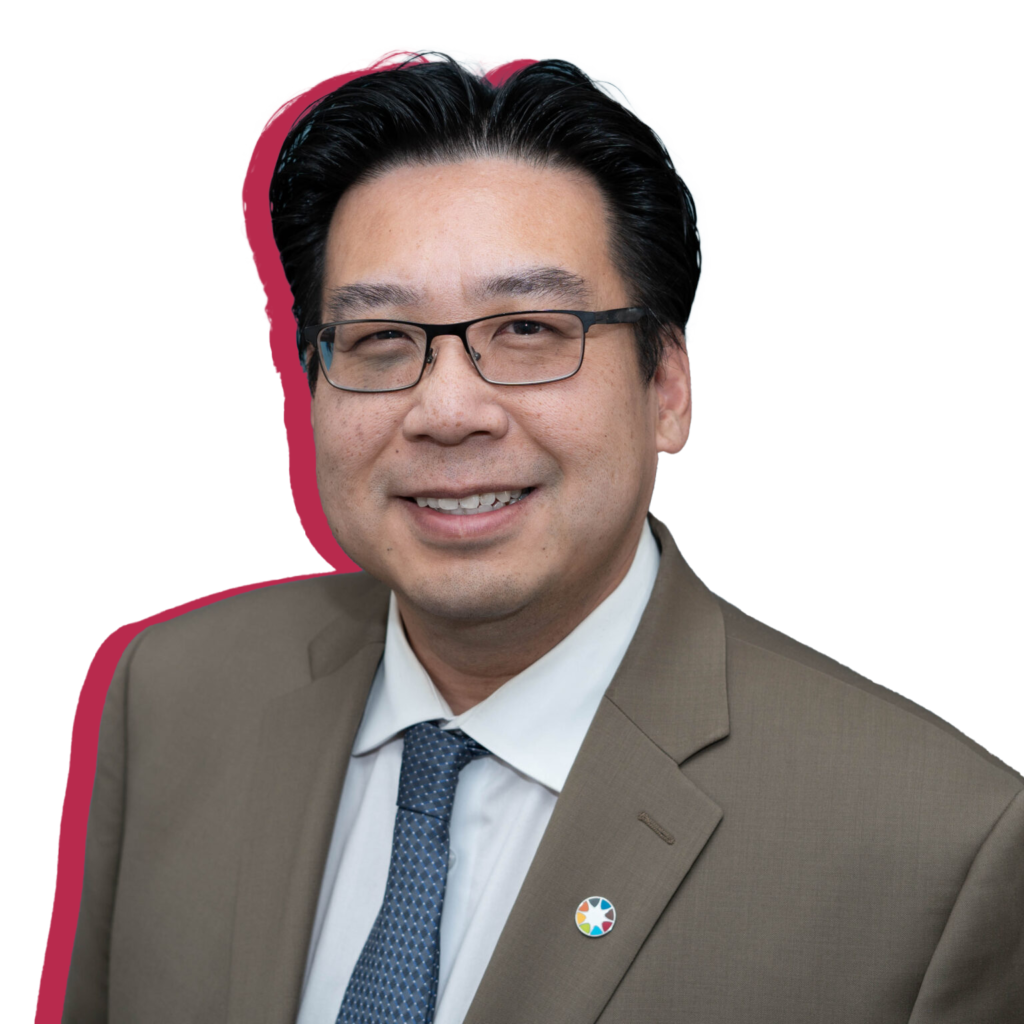
“From affordable housing and energy assistance to behavioral health and early learning, the investments we make in equitable, evidence-based solutions will transform lives and entire communities.”
Mike Fong
Former Director, Department of Commerce

“Poverty is a policy choice. We can end poverty in Washington and the 10-Year Plan is the way to do it. It’s thrilling to see the Alliance partnership working with people experiencing poverty to create social and economic conditions that would allow more Washingtonians to thrive.”
Juanita Maestas
Emeritus Alliance Co-Lead
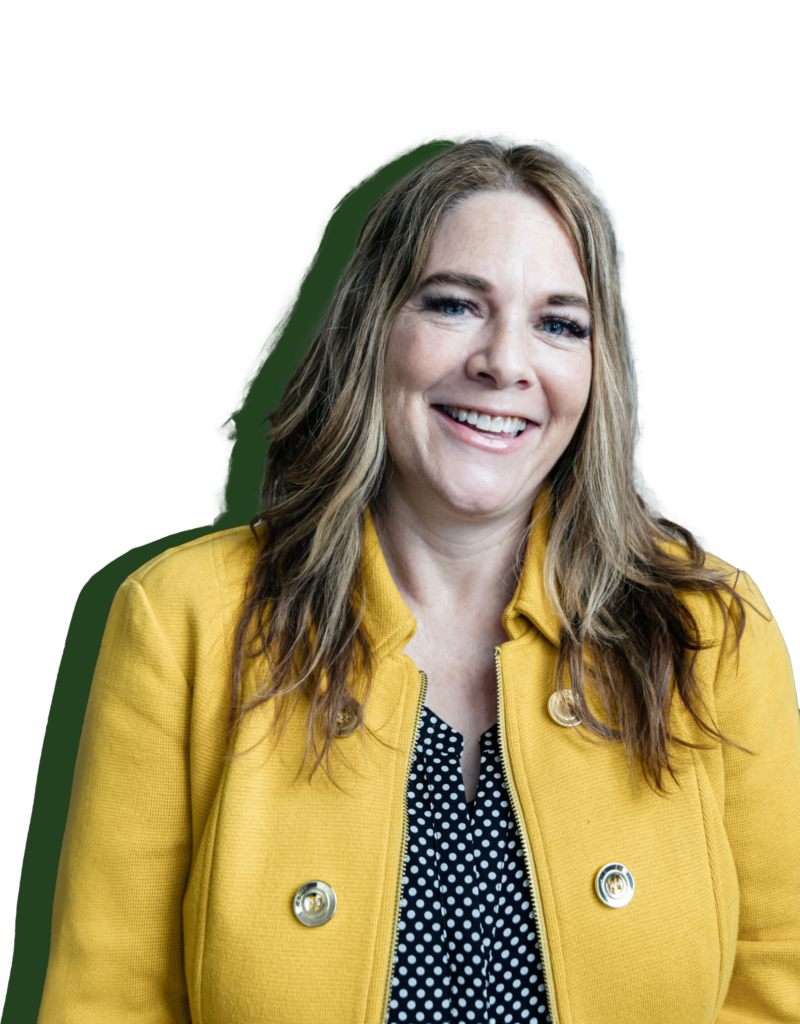
“The less people worry about affording food or rent, the more they can focus on school, work, and family”
Cami Feek
Commissioner, Employment Security Department
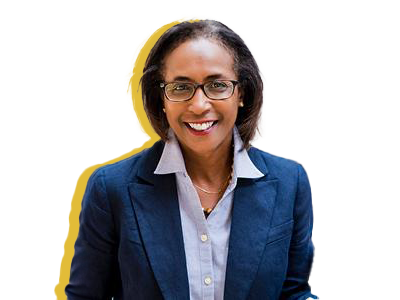
“United Way of Pierce County is proud to be a part of the creation and now implementation of the 10- Year Plan in Washington state. No one organization can reduce poverty alone – creating just and equitable outcomes requires diverse stakeholders coming together. WEJA is absolutely mobilizing change because of how they’ve done their work, and United Way Pierce County has incorporated many of the strategies of the 10-Year Plan into our local efforts to lift families out of poverty and move them towards self-sufficiency.”
Dona Ponepinto
CEO and President, United Way of Pierce County
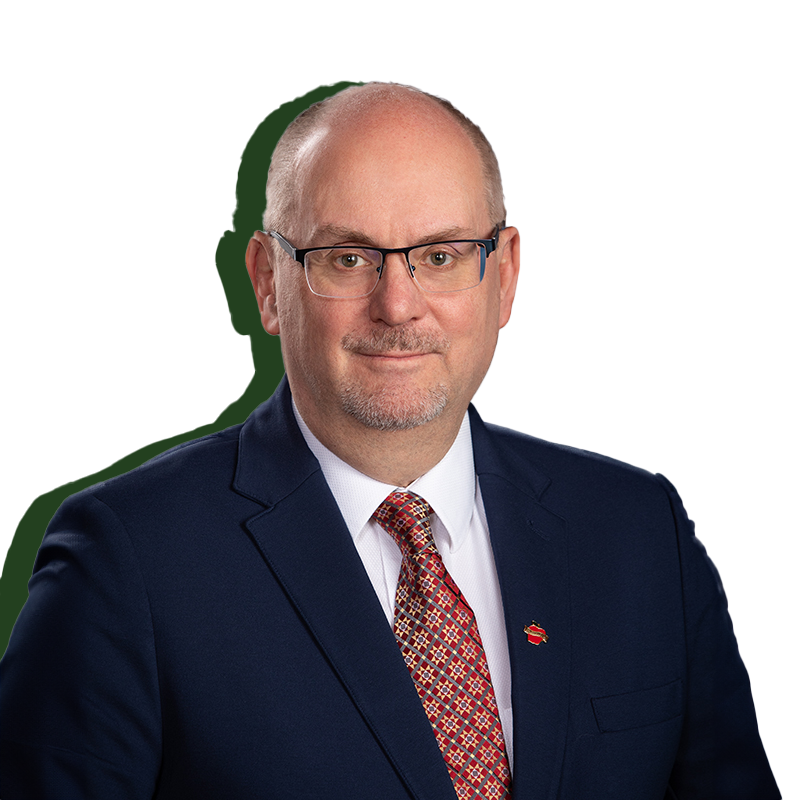
“Less poverty is an economic win for the state, but the peace of mind economic stability gives families is priceless.”
Drew Shirk
Director, Department of Revenue

“Economic justice is health justice. Poverty is such a pressing public health concern because it keeps people from achieving the optimal health all of us need. When we work together to reduce poverty, we without a doubt improve the health and well-being for all Washingtonians.”
Umair A. Shah, MD, MPH
Former Secretary of Health
What Economic justice means to washington
The Alliance is inspired by the idea that the opposite of poverty is not wealth, but just and equitable conditions that allow everyone to reach their full potential. When asked, many Washingtonians agree – economic justice is not about being rich, it’s about being well:
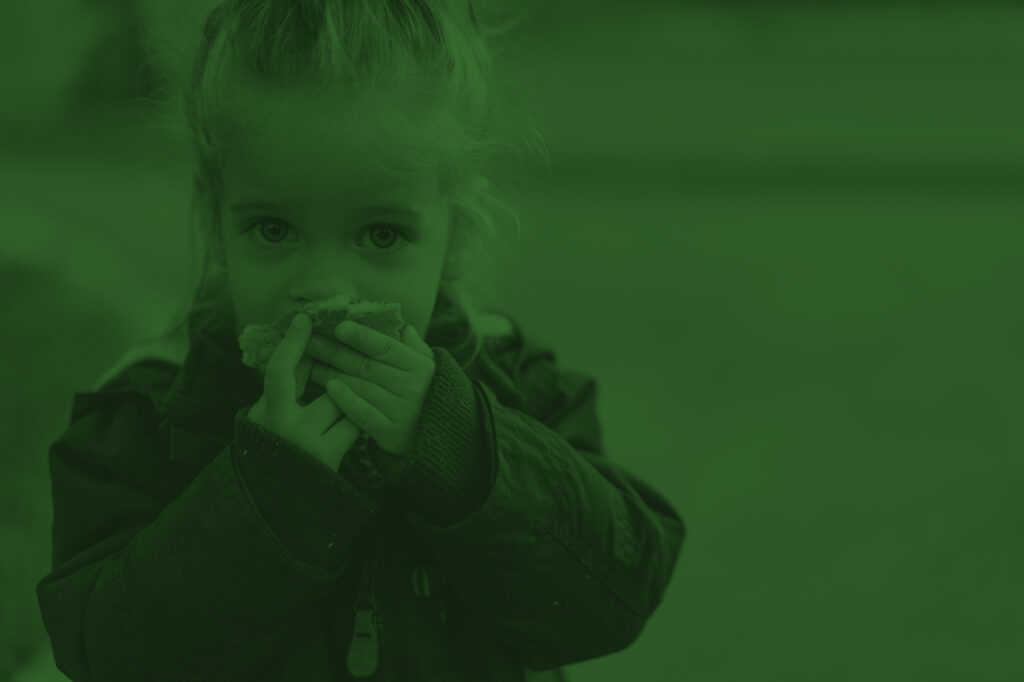
“Economic justice is when working full-time guarantees the ability to afford food and rent.”

“Economic justice is not having to choose between taking your kid to see a doctor or pay your utilities.”

“Economic justice is not about being rich, it’s about being well.”

“Economic justice is the freedom to thrive no matter what you look like, where you live, or who you love.”

“Economic justice is when working full-time guarantees the ability to afford food and rent.”
“Economic justice is not having to choose between taking your kid to see a doctor or pay your utilities.”


“Economic justice is not about being rich, it’s about being well.”
“Economic justice is the freedom to thrive no matter what you look like, where you live, or who you love.”

Voices of economic justice
Share your story
Curious about what economic justice really looks like? Click the video to hear powerful stories and insights from our Alliance members as they share what economic justice means to them.
Your voice matters! Join the conversation and tell us what economic justice means to you.

THE ALLIANCE NEEDS YOU!
The Alliance has set a foundation for the considerable work that remains. Too many hard working Washingtonians are still struggling to make ends meet and gaps in well-being for rural families, the 2SLGBTQIA+ community, children, women and people of color remain too large. Official poverty rates for Washington state are trending in the right direction, but fail to capture the full story. Better, up-to-date cost-of-living measures that take into account basic household expenses and the impact of inflation, of inflation – like the Supplemental Poverty Measure, Self-Sufficiency Standard and ALICE 2 – show untenable and unacceptable economic hardship above the poverty line for people from all communities.
What’s in the soil bears the fruit. Investing in the 10-Year Plan and creating healthy community conditions that make it easier for hard working Washingtonians to make ends meet – like jobs that pay family-sustaining wages, a fair tax system, high quality education for students of all ages, and affordable child care and housing – would allow more children, families and communicates to reach their full potential and thrive.
COST-OF-LIVING MEASURES VS. OFFICIAL POVERTY MEASURE 2 Washington State
Cost-of-living measures show a lot more Washingtonians struggling to make ends meet with incomes above the official poverty measure.
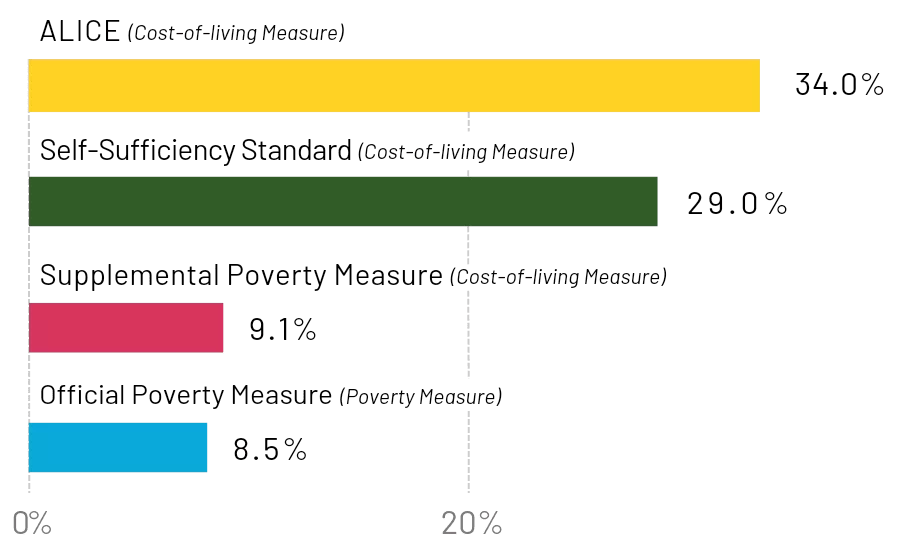
CHOOSE YOUR OWN ADVENTURE
Are you passionate about economic justice? Doing innovative work to reduce poverty in your community? Interested in the Alliance’s work?
Join us in creating a Washington state free of poverty and full of accessible opportunity for generations to come.
Acknowledgements
We are grateful to all the people and organizations who contributed to and make up the Economic Justice Alliance.
Special thanks to the Annie E. Case Foundation, Bill and Melinda Gates Foundation, Kresge Foundation, Washington State Employees Credit Union, and Robert Wood Johnson Foundation for your generous support of Washington state’s poverty reduction and economic justice efforts.
Steering Committee Members
Agency Leadership
- Alina Swart
- Amy Roark
- Ceasar Carter
- Christianna Clinton
- Claudia Franson
- Dante Pollard
- Drayton Jackson
- Jennifer Bereskin-SeaMonster
- Johnathan Hemphill
- Juanita Maestas
- Kristina Sawyckyj
- Krystina Morton
- Miranda Hunter
- Monette Hearn
- Tracy Lang’at
- Victoria Hilt
- Shereese Rhodes
- Sherri Hall
- Cami Feek, ESD Commissioner
- Drew Shirk, Director of DOR
- Jilma Meneses, Secretary of DSHS
- Mike Fong, Director of COM
- Ross Hunter, Secretary of DCYF
- Umair A. Shah, Secretary of Health
- Sue Birch, Director, Health Care Authority
Poverty Reduction Workgroup (past & present)
- Ami Magisos, Washington Student Achievement Council
- Amina Ahmed, Partners in Employment
- Amy Martinez, South Central Workforce Development Council
- Babs Roberts, Department of Social & Health Services
- Brice Montgomery, Department of Social & Health Services
- Cecil Daniels, Department of Commerce
- Cheryl Fambles, Pacific-Mountain Workforce Development Council
- Chris Gildon, Washington State Senator
- Christina Wong, Washington Conservation Action
- Cindil Redick-Ponte, Department of Health
- Claude Green, Mentor Washington
- Colleen Echohawk, formerly Chief Seattle Club
- Daisye Orr, formerly Department of Health
- David Stillman, formerly Department of Social & Health Services
- Diane Klontz, CSHD Department of Commerce
- Dona Ponepinto, United Way of Pierce County
- Donna Christensen, Catholic Community Services of Western Washington
- Drayton Jackson, Co-Chair, Steering Committee
- Drew Cassidy, Workforce Training and Education Board
- Ebo Barton, Washington State LGBTQ+ Commission
- Ed Prince, Commission on African American Affairs
- Ellen Austin Hall, Attorney General’s Office
- Emily Grossman, Department of Children, Youth, and Families
- Erin Frasier, State Board of Community & Technical Colleges
- Erin Monroe, Workforce Snohomish
- Eu-wanda Eagans, Workforce Development Goodwill of the Olympics & Rainier Region
- Gary Chandler, Association of Washington Businesses
- Haley Lowe, Office of Superintendent of Public Instruction
- Senator Hans Zeiger, former Washington State Senator
- Hien Kieu, Partners in Employment
- James Brackett, Policy Manager, Health Care Authority
- James Harms, Department of Corrections
- Jan Wichert, Vancouver Housing Authority
- Jeff DeLuca, Executive Director, WA. St. Community Action Partnership
- Jennie Fitzpatrick, DOC
- Jennifer Dellinger, SBCTC
- Jim Baumgart, Office of the Governor
- Jim Cooper, President & CEO, United Ways of the Pacific Northwest
- Jorji Knickrehm, King County
- Josephine Tamayo Murray, Catholic Community Services
- Juanita Maestes, Statewide Poverty Action Network
- Julie Watts, Washington State Budget & Policy Center
- Kate Kelly, Washington Hospitality Association
- Kevin Lee, WSCADV
- Larry Eyer, formerly of Community Action Partnership
- Lindsay Hunsicker, Bill & Melinda Gates Foundation
- Liz Olson, Washington State Budget & Policy Center
- Lonnie Johns-Brown, Office of the Insurance Commissioner
- Luba Bezborodnikova, Department of Children, Youth, and Families
- Lydia Faitalia, CAPAA
- Manka Dhingra, Washington State Senator
- Manny Santiago, WA Health Benefits Exchange
- Marcy Bowers, Statewide Poverty Action Network
- Maria Sigüenza, Commission on Hispanic Affairs
- Marie Bruin, Employment Security Department
- Marisol Tapia Gonzales, Washington State Commission on Hispanic Affairs
- Mark Bergeson, Washington Student Achievement Council
- Michael Reichert, Catholic Community Services
- Nam Nguyen, Commissioner, Commission on Asian Pacific Islander American Affairs
- Nancy Aguilar, Washington State Commission on Hispanic Affairs
- Neil Strege, Washington Business Roundtable
- Nicole Rose, Department of Children, Youth, and Families
- Nova Gattman, Work Force Training & Education Coordinating Board
- Councilmember Nickolaus Lewis, Lummi Nation
- Renee Fullerton, Workforce Training and Education Board
- Sandra Miller, Office of the Attorney General
- Sarah Buhayar, Bill & Melinda Gates Foundation
- Sharon Pesut, Partners in Careers
- Steven Sawyer, LGBTQ Commission
- Terry Redmon, Department of Social & Health Services
- Tim Probst, Employment Security Department
- Tracy Yeung, Washington State Budget and Policy Center
Alliance Support Staff (past & present)
- Alex Panagotacos, Department of Social & Health Services
- Amy Willerford, former PRWG Intern
- Babs Roberts, Department of Social & Health Services
- Briana Allen, Department of Social & Health Services
- Brice Montgomery, Department of Social & Health Services
- Carol Albert, formerly Department of Social & Health Services
- Charice Pidcock, Department of Social & Health Services
- Erica Walker, Statewide Poverty Action Network
- Gwen Teok, Department of Social & Health Services
- Ilene Stohl, Department of Social & Health Services
- Lianna Kressin, Statewide Poverty Action Network
- Lindsay Morgan Tracy, Department of Social & Health Services
- Livey Beha, Department of Social & Health Services
- Lori Pfingst, Department of Social & Health Services
- Marcy Bowers, Statewide Poverty Action Network
- Megan Matthews, formerly Department of Social & Health Services
- Omar Cuevas Vega, formerly Statewide Poverty Action Network
- Patricia Lally, Racial Equity Works
- Roxanne Garcia, former PRWG Intern
- Shaun Scott, Statewide Poverty Action Network
Steering Committee Members
- Alina Swart
- Amy Roar
- Ceasar Carte
- Christianna Clinton
- Claudia Franson
- Dante Pollard
- Drayton Jackson
- Jennifer Bereskin-SeaMonster
- Johnathan Hemphill
- Juanita Maestas
- Kristina Sawyckyj
- Krystina Morton
- Miranda Hunter
- Monette Hearn
- Tracy Lang’at
- Victoria Hilt
- Shereese Rhodes
- Sherri Hall
Agency Leadership
- Cami Feek, ESD Commissioner
- Drew Shirk, Director of DOR
- Jilma Meneses, Secretary of DSHS
- Mike Fong, Director of COM
- Ross Hunter, Secretary of DCYF
- Umair A. Shah, Secretary of Health
- Sue Birch, Director, Health Care Authority
Poverty Reduction Workgroup (past & present)
- Ami Magisos, Washington Student Achievement Council
- Amina Ahmed, Partners in Employment
- Amy Martinez, South Central Workforce Development Council
- Babs Roberts, Department of Social & Health Services
- Brice Montgomery, Department of Social & Health Services
- Cecil Daniels, Department of Commerce
- Cheryl Fambles, Pacific-Mountain Workforce Development Council
- Chris Gildon, Washington State Senator
- Christina Wong, Washington Conservation Action
- Cindil Redick-Ponte, Department of Health
- Claude Green, Mentor Washington
- Colleen Echohawk, formerly Chief Seattle Club
- Daisye Orr, formerly Department of Health
- David Stillman, formerly Department of Social & Health Services
- Diane Klontz, CSHD Department of Commerce
- Dona Ponepinto, United Way of Pierce County
- Donna Christensen, Catholic Community Services of Western Washington
- Drayton Jackson, Co-Chair, Steering Committee
- Drew Cassidy, Workforce Training and Education Board
- Ebo Barton, Washington State LGBTQ+ Commission
- Ed Prince, Commission on African American Affairs
- Ellen Austin Hall, Attorney General’s Office
- Emily Grossman, Department of Children, Youth, and Families
- Erin Frasier, State Board of Community & Technical Colleges
- Erin Monroe, Workforce Snohomish
- Eu-wanda Eagans, Workforce Development Goodwill of the Olympics & Rainier Region
- Gary Chandler, Association of Washington Businesses
- Haley Lowe, Office of Superintendent of Public Instruction
- Senator Hans Zeiger, former Washington State Senator
- Hien Kieu, Partners in Employment
- James Brackett, Policy Manager, Health Care Authority
- James Harms, Department of Corrections
- Jan Wichert, Vancouver Housing Authority
- Jeff DeLuca, Executive Director, WA. St. Community Action Partnership
- Jennie Fitzpatrick, DOC
- Jennifer Dellinger, SBCTC
- Jim Baumgart, Office of the Governor
- Jim Cooper, President & CEO, United Ways of the Pacific Northwest
- Jorji Knickrehm, King County
- Josephine Tamayo Murray, Catholic Community Services
- Juanita Maestes, Statewide Poverty Action Network
- Julie Watts, Washington State Budget & Policy Center
- Kate Kelly, Washington Hospitality Association
- Kevin Lee, WSCADV
- Larry Eyer, formerly of Community Action Partnership
- Lindsay Hunsicker, Bill & Melinda Gates Foundation
- Liz Olson, Washington State Budget & Policy Center
- Lonnie Johns-Brown, Office of the Insurance Commissioner
- Luba Bezborodnikova, Department of Children, Youth, and Families
- Lydia Faitalia, CAPAA
- Manka Dhingra, Washington State Senator
- Manny Santiago, WA Health Benefits Exchange
- Marcy Bowers, Statewide Poverty Action Network
- Maria Sigüenza, Commission on Hispanic Affairs
- Marie Bruin, Employment Security Department
- Marisol Tapia Gonzales, Washington State Commission on Hispanic Affairs
- Mark Bergeson, Washington Student Achievement Council
- Michael Reichert, Catholic Community Services
- Nam Nguyen, Commissioner, Commission on Asian Pacific Islander American Affairs
- Nancy Aguilar, Washington State Commission on Hispanic Affairs
- Neil Strege, Washington Business Roundtable
- Nicole Rose, Department of Children, Youth, and Families
- Nova Gattman, Work Force Training & Education Coordinating Board
- Councilmember Nickolaus Lewis, Lummi Nation
- Renee Fullerton, Workforce Training and Education Board
- Sandra Miller, Office of the Attorney General
- Sarah Buhayar, Bill & Melinda Gates Foundation
- Sharon Pesut, Partners in Careers
- Steven Sawyer, LGBTQ Commission
- Terry Redmon, Department of Social & Health Services
- Tim Probst, Employment Security Department
- Tracy Yeung, Washington State Budget and Policy Center
Alliance Support Staff (past & present)
- Alex Panagotacos, Department of Social & Health Services
- Amy Willerford, former PRWG Intern
- Babs Roberts, Department of Social & Health Services
- Briana Allen, Department of Social & Health Services
- Brice Montgomery, Department of Social & Health Services
- Carol Albert, formerly Department of Social & Health Services
- Charice Pidcock, Department of Social & Health Services
- Erica Walker, Statewide Poverty Action Network
- Gwen Teok, Department of Social & Health Services
- Ilene Stohl, Department of Social & Health Services
- Lianna Kressin, Statewide Poverty Action Network
- Lindsay Morgan Tracy, Department of Social & Health Services
- Livey Beha, Department of Social & Health Services
- Lori Pfingst, Department of Social & Health Services
- Marcy Bowers, Statewide Poverty Action Network
- Megan Matthews, formerly Department of Social & Health Services
- Omar Cuevas Vega, formerly Statewide Poverty Action Network
- Patricia Lally, Racial Equity Works
- Roxanne Garcia, former PRWG Intern
- Shaun Scott, Statewide Poverty Action Network
Endnotes
1 SOURCE: The Alliance uses 3-year pooled 2018-2023 American Community Survey data from the U.S. Census to report state trends in the official poverty rate and 5-year pooled 2018-2022 data to report trends for demographic groups (e.g., age, race, ethnicity) and sub-state geographic regions (e.g. counties, cities and zip codes). Updated 5-year data will be released by the U.S Census in December 2024.
2 NOTE: Data for the ALICE measure is at the household-level, whereas data for the measures are at the person-level. The data shown are the latest data for each of the measures. The latest data for ALICE and Self-Sufficiency Standard are from 2022, and the latest data for the Supplemental Poverty Measure and the Official Poverty Measure are from 2023.
3 SOURCES: 2021,2022, and 2023 3-Year Average of Current Population Survey, Annual Social Economic Supplements, U.S. Census Bureau 2022 Washington State Dataset, Self-Sufficiency Standard at the Center of Women’s Welfare, University of Washington 2022 ALICE Threshold, United for ALICE Research Center



